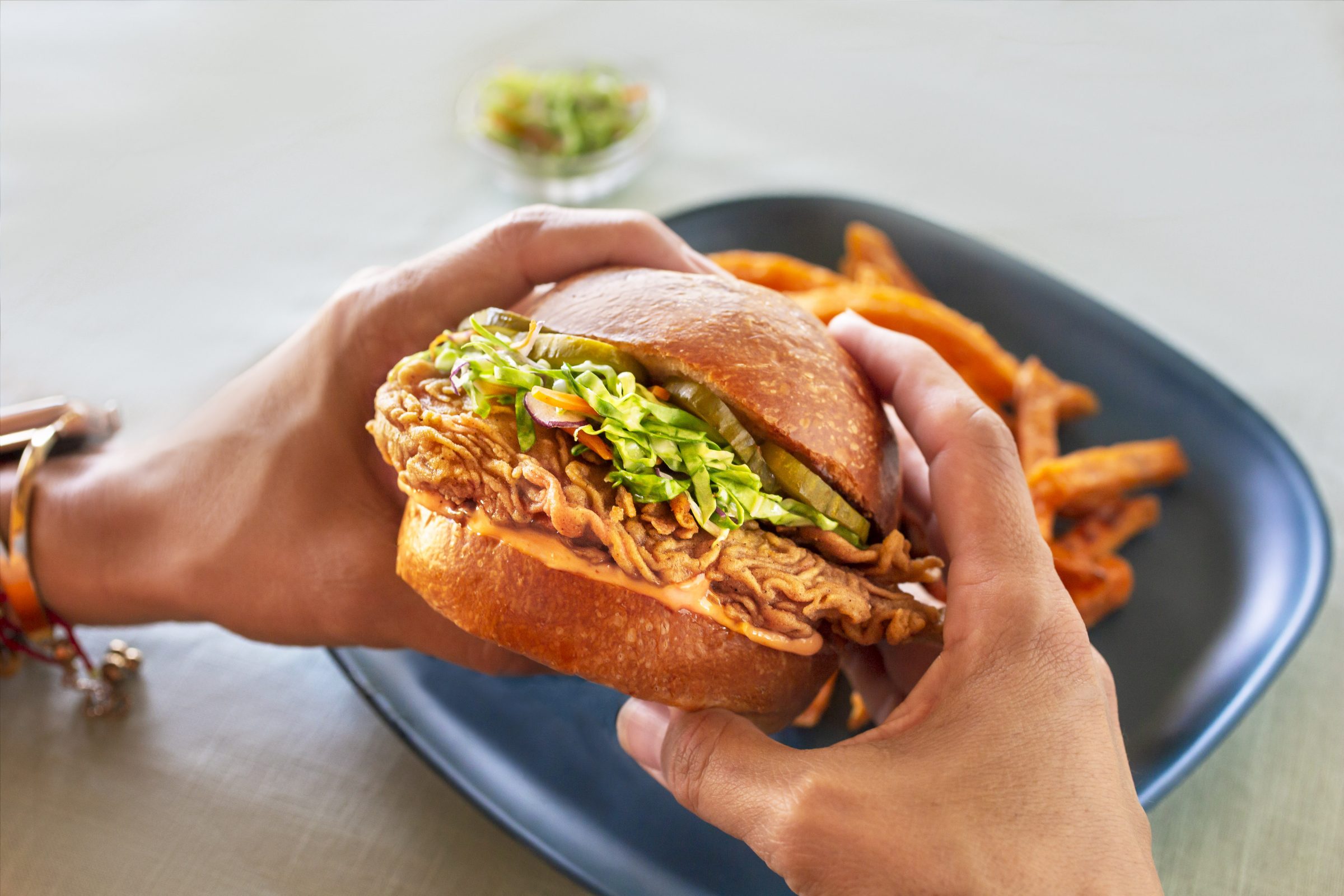A House Republican wants to ban lab-grown meat in Tennessee because its effects on humans, she said, were unknown and state citizens shouldn’t be used as “guinea pigs,” and, heck, Florida did it.
Rep. Susan Lynn (R-Mt. Juliet) explained her bill to the House Agriculture & Natural Resources Subcommittee on Tuesday. It would have outlawed cultivated meat for human consumption at the business level, meaning no manufacturing, selling, and more.
Cultivated meat — sometimes called cultured meat or lab-grown meat — is real animal meat but is produced by cultivating animal cells directly, cutting out the need to raise animals, according to the Good Food Institute. The meat is in different products by Beyond Meat and Impossible Foods, which are made with plant ingredients. The U.S. Department of Agriculture approved cultivated meat for sale in the U.S. in June.











The news was welcome for People for the Ethical Treatment of Animals (PETA). The group said it funded some of the first research for cultivated meat and, beginning in 2008, offered a $1 million prize for the first lab to use produce commercially viable cultivated meat.
The news was also welcome to Berkeley-California-based Upside Foods, the world’s first cultivated meat company. When it was founded in 2015, the company was called Memphis Meats, a tip of the hat to the city’s barbecue culture. When the feds green-lit its meat products, the company was ready to go and already valued at over $1 billion.
“This approval will fundamentally change how meat makes it to our table,” said Dr. Uma Valeti, CEO and founder of Upside Foods. “It’s a giant step forward towards a more sustainable future — one that preserves choice and life.“
“It’s a giant step forward towards a more sustainable future — one that preserves choice and life.“
Dr. Uma Valeti, CEO and founder of Upside Foods
However, two Tennessee state lawmakers urged caution on the products, suggesting an outright ban on making and selling it in the state. They said they didn’t know how the products would affect bodies and did not want Tennesseans to be “used as Guinea pigs.”
“It’s simply just too soon and too dangerous to allow this process to move forward before we know what sort of effects cultivated meat may have on people,” Lynn said. “The first question is one of ethics. Is this semi-cloning? We have no idea really where this is going. What happens when you create lab grown meat?”
If that wasn’t enough to entice fellow Republicans, Lynn said the Florida legislature had already passed such a measure. Florida Governor Ron DeSantis has not yet signed the bill but showed his support for the ban last month.
”You need meat, OK?” DeSantis said, saying some blame agriculture for global warming. “We’re going to have meat in Florida. We’re not going to do that fake meat. That doesn’t work.”
”You need meat, OK?
Florida Governor Ron DeSantis
Lynn said the federal government has a track record of approving “medications and treatments” but retracts them later, “due to horrible adverse circumstances.” She pointed to drugs like Prevacid, Nexium, and Prilosec, which all once faced recalls but are back on store shelves. She also said the government once said cigarettes were safe.
Rep. Bud Hulsey (R-Kingsport) agreed, pointing vaguely to the Nuremberg Code, which outlawed experimenting on humans without their consent, and to the “experimental shock” of Covid. But his approval of the bill seemed more plain.
“Some folks probably like to eat bugs with Bill Gates, but not me,” Hulsey said.
Lynn said she was not aware of any cultivated meat being sold anywhere in the state. Also, she had not discussed her bill with the Tennessee Department of Agriculture.
“Some folks probably like to eat bugs with Bill Gates, but not me.”
Tennessee state Rep. Bud Hulsey
Another bill up this year would have clarified that cultivated meat could not be labeled as meat, poultry, or such food products. It was heard by House members already, who decided to send the issue to “summer study.” That is, ultimately, where the bill to ban such products ended up. Lawmakers said they hoped to get expert opinion on the safety of cultivated meat.
Summer study is usually a kinder, softer death knell for legislation in the Capitol. But the House agriclture committee promised to give the issue of cultivated meat a serious review before the legislature meets again next year.


